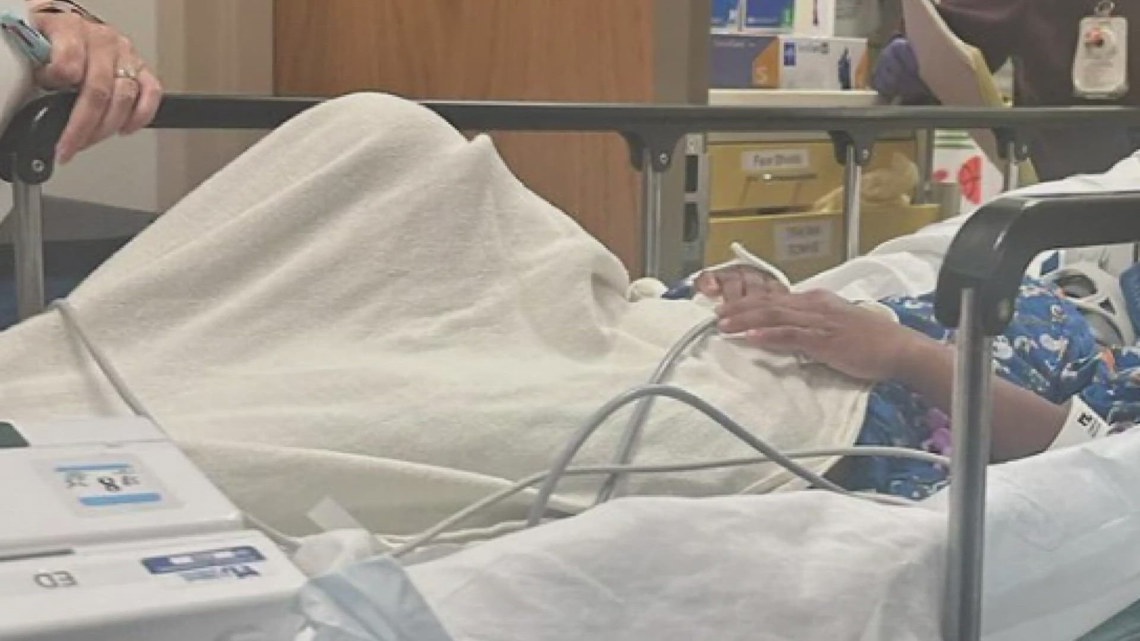The group "Family Values @ Work" is hosting an event Friday night at the MLK Library called Caring Out Loud to raise awareness about its importance.
WASHINGTON — Caregivers from across the country are gathering to advocate for paid family and medical leave in D.C. Friday night.
According to the Department of Labor, most states as well as the federal government do not mandate employers to provide it right now.
The group "Family Values @ Work" has gradually been able to convince cities across the country to adopt paid leave ordinances.
They're the ones hosting the event called Caring Out Loud Friday, which features caregiving "storytellers" sharing their experiences in the hopes of changing hearts and minds.
One of these storytellers is Rhonda Wilson.
She joined a Meetup group to connect with other single women without family nearby after moving to Atlanta.
"One of the ladies ended up having a brain aneurysm, and the doctor contacted the remainder of us, the three of us, and I, even thinking back, I was still kind of surprised at why she was contacting us," Wilson said. "But then I thought about it, and I'm like, we're all alone, all of us, you know, there's no one else. So what do you do in a situation like that? ... For us, we just we couldn't do that to somebody — we couldn't leave her hanging like that by herself."
Caring Out Loud: A Night of Community & Courage
Join us for a powerful evening of personal storytelling that reveals the raw reality of caregiving. From chosen families to parents facing impossible choices, these stories shine a light on the daily challenges working families… pic.twitter.com/hjb50FDJtB
So, Wilson and some of the ladies in the group ended up rotating schedules to look after their new friend for four months.
That experience proved to her how important paid family and medical leave is.
"First of all, people need to feel safe enough to recover. I feel like there's this idea of you got to keep going. You got to keep going, even if you're sick, even if something's wrong, you still got to keep going. But it's like, we're all going to get sick at some point," Wilson said. "That makes a world of difference if you don't have to think about, 'Oh my goodness, if I don't have any PTO, I don't have any sick time, how am I going to pay my rent? How am I going to pay my mortgage?'"
Fellow storyteller Tony Iovieno was also suddenly thrust into a caregiver role last year.
His brother-in-law and pregnant sister-in-law were in a horrible car crash with their two-year-old son. The crash killed his brother-in-law, but his sister-in-law and both her kids survived.
But they needed help recovering.
“One thing that became apparent for me real quick was in my big entire awesome Michigan family, I was the only one who had access to a paid leave program. My wife works for another nonprofit, but we have farmers, we have teachers, we have CNAs, and, yeah, there's not a federal policy; there's not a state policy here in my state of Michigan that would cover them or something local like that," Iovieno said. "So while everyone, of course, rushed and did everything that they could to try to take care of this, reality was also there. ... And I think that sucks. You know, it really does.”
He stepped up to help because of his access to paid leave, but he doesn't think this should be such a rare resource.
Family Values @ Work has gradually been helping to pass laws in cities across the country, but the big goal is to codify paid leave federally.
Here in the DMV, D.C. has a paid family and medical leave law in place. Maryland passed similar legislation, which is set to take place in July 2026. And Virginia does not have a mandate for paid leave.
Those who oppose these policies cite a high cost to employers, a lack of employee attachment to their jobs because of their time away from work, and say it could lead to discrimination against women, who are often the primary caregivers, according to a Stanford publication.
"We're here to change some hearts and minds. We have a storytelling event, and that's one of the ways we found is a great way to make this issue real for people. ... I'm not necessarily the face, if you will, of what caregiving might look like in the United States, and it's not something I was ever looking for or like planning for. But I want people to understand that it can find you in a moment, and that even if you think I can't possibly do this, you can figure it out," Iovieno said. "But, we just we have to have policies that make it okay for families to be there when tragedy happens or when something really great happens."
You can find more information on Friday's event here.
.png)









 English (US) ·
English (US) ·